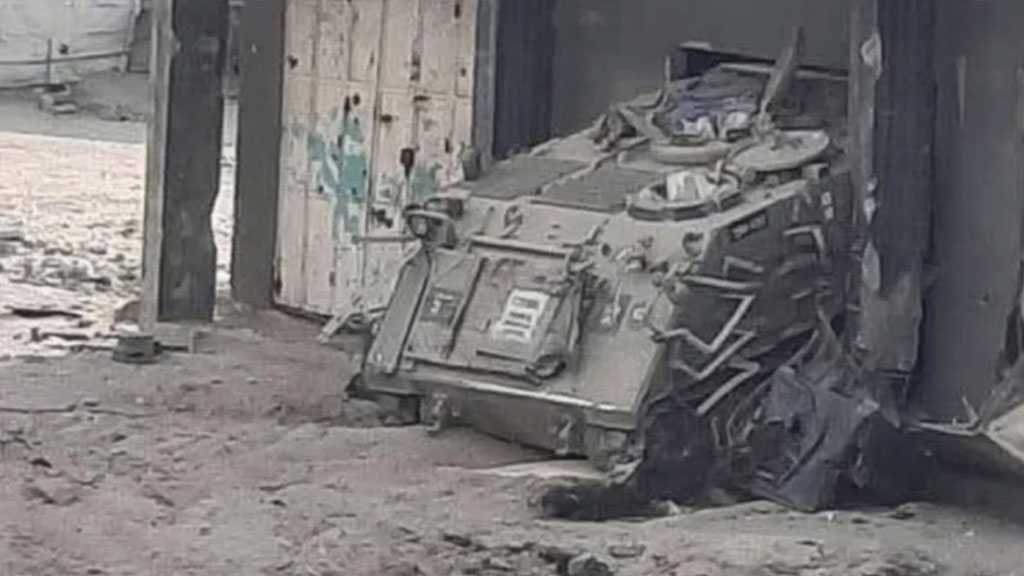US: Punishing Iran should be foundation stone of Washington diplomacy

Source: Press TV, 19-12-2008
A US foreign policy heavyweight suggests that punishing Iran should be a foundation stone of Washington diplomacy toward the country.
The Democratic Chairman of the House Foreign Affairs Committee, Howard Berman, said Friday that he supports direct and "immediate" dialogue with Iran over its uranium enrichment activities, declaring that "the current strategy is not working".
Berman said any negotiation with Tehran should occur in a set duration of no more than 8 to 12 weeks before the Iranian presidential elections in June 2009.
The influential foreign affairs official described the carrot-and-stick approach as the cornerstone of US diplomacy, suggesting that any talks with Iran would be directed at forcing the country to suspend its nuclear activities.
The United States and "Israel", the possessor of the sole nuclear arsenal in the Middle East, allege that Iran has "plans" to develop a military nuclear program.
Tehran says its activities are directed at the civilian applications of the technology and are in line with the nuclear Non-Proliferation Treaty (NPT) -- the treaty grants all signatories the right to enrich uranium for peaceful purposes.
Washington, however, insists that the Islamic Republic must concede its power to develop a domestic program in the face of Western pressure.
If the talks fail to persuade Tehran into bringing its nuclear activities to an end, Washington must convince other countries -- including Russia -- to support "crippling" sanctions against Tehran, the US congressman asserted.
"It is hard for me to believe they [Russians] want to see Iran get nuclear weapons ...I think there is an interest there, but it is not as high an interest as some of the [other] ones they feel threatened by," he said.
While upper echelons in Washington continue to believe that world "interest" lies in pressuring nations not to seek uranium enrichment, Russian assertions contradict the contention that the US approach has garnered world support.
Moscow intelligence agencies have revealed with high confidence that Tehran lacks the "means" to develop a military nuclear program.
"One cannot say today that Iran can create nuclear weapons," head of the Russian Foreign Ministry's department of European cooperation, Vladimir Voronkov, was quoted by ITAR-TASS
news agency as saying earlier in December.
The Russian diplomat added that the Kremlin is of the belief that a punitive approach does not necessarily bear fruit.
"We do not consider such instruments to be always effective," he affirmed.
Russian assertions have been confirmed by the UN nuclear watchdog, which has announced that Iran has managed to enrich uranium-235 to a level "less than 5 percent." The rate is consistent with the development of a nuclear power plant. Nuclear arms production, meanwhile, requires an enrichment level of above 90 percent.
According to US foreign affairs heavyweight Howard Berman, however, the next step in Washington diplomacy would be to make major compromises on the deployment of a US-sought missile system in Europe in an all-out effort to drum up Russian support for punishing Tehran.
The White House bid to install an anti-missile radar facility in the Czech Republic and interceptor missiles in Poland has sparked fury in Moscow and has triggered a Cold War-style clash with the Kremlin.
President Dmitry Medvedev and Prime Minister Vladimir Putin have urged US President-elect Barack Obama to jettison the project -- launched by the Bush administration.
The Russian military announced Wednesday that it would replace its Soviet-era arsenal with new nuclear-capable intercontinental missiles capable of countering the US missile shield.
"By 2015-2020 the Russian strategic rocket forces will have new complete missile systems with improved combat characteristics," said the commander of Russian missile forces, General Nikolai Solovtsov.
"They will be capable of carrying out any tasks, including in conditions where an enemy uses anti-missile defense measures," the Russian general explained.
Washington responded by resorting to one-upmanship with Russia, claiming that the nuclear missile refurbishment shows that "the Russians intend to test the mettle of the new administration and the new president."
Barack Obama has yet to elaborate on the details of his plans regarding the European-based missile shield.
A US foreign policy heavyweight suggests that punishing Iran should be a foundation stone of Washington diplomacy toward the country.
The Democratic Chairman of the House Foreign Affairs Committee, Howard Berman, said Friday that he supports direct and "immediate" dialogue with Iran over its uranium enrichment activities, declaring that "the current strategy is not working".
Berman said any negotiation with Tehran should occur in a set duration of no more than 8 to 12 weeks before the Iranian presidential elections in June 2009.
The influential foreign affairs official described the carrot-and-stick approach as the cornerstone of US diplomacy, suggesting that any talks with Iran would be directed at forcing the country to suspend its nuclear activities.
The United States and "Israel", the possessor of the sole nuclear arsenal in the Middle East, allege that Iran has "plans" to develop a military nuclear program.
Tehran says its activities are directed at the civilian applications of the technology and are in line with the nuclear Non-Proliferation Treaty (NPT) -- the treaty grants all signatories the right to enrich uranium for peaceful purposes.
Washington, however, insists that the Islamic Republic must concede its power to develop a domestic program in the face of Western pressure.
If the talks fail to persuade Tehran into bringing its nuclear activities to an end, Washington must convince other countries -- including Russia -- to support "crippling" sanctions against Tehran, the US congressman asserted.
"It is hard for me to believe they [Russians] want to see Iran get nuclear weapons ...I think there is an interest there, but it is not as high an interest as some of the [other] ones they feel threatened by," he said.
While upper echelons in Washington continue to believe that world "interest" lies in pressuring nations not to seek uranium enrichment, Russian assertions contradict the contention that the US approach has garnered world support.
Moscow intelligence agencies have revealed with high confidence that Tehran lacks the "means" to develop a military nuclear program.
"One cannot say today that Iran can create nuclear weapons," head of the Russian Foreign Ministry's department of European cooperation, Vladimir Voronkov, was quoted by ITAR-TASS
news agency as saying earlier in December.
The Russian diplomat added that the Kremlin is of the belief that a punitive approach does not necessarily bear fruit.
"We do not consider such instruments to be always effective," he affirmed.
Russian assertions have been confirmed by the UN nuclear watchdog, which has announced that Iran has managed to enrich uranium-235 to a level "less than 5 percent." The rate is consistent with the development of a nuclear power plant. Nuclear arms production, meanwhile, requires an enrichment level of above 90 percent.
According to US foreign affairs heavyweight Howard Berman, however, the next step in Washington diplomacy would be to make major compromises on the deployment of a US-sought missile system in Europe in an all-out effort to drum up Russian support for punishing Tehran.
The White House bid to install an anti-missile radar facility in the Czech Republic and interceptor missiles in Poland has sparked fury in Moscow and has triggered a Cold War-style clash with the Kremlin.
President Dmitry Medvedev and Prime Minister Vladimir Putin have urged US President-elect Barack Obama to jettison the project -- launched by the Bush administration.
The Russian military announced Wednesday that it would replace its Soviet-era arsenal with new nuclear-capable intercontinental missiles capable of countering the US missile shield.
"By 2015-2020 the Russian strategic rocket forces will have new complete missile systems with improved combat characteristics," said the commander of Russian missile forces, General Nikolai Solovtsov.
"They will be capable of carrying out any tasks, including in conditions where an enemy uses anti-missile defense measures," the Russian general explained.
Washington responded by resorting to one-upmanship with Russia, claiming that the nuclear missile refurbishment shows that "the Russians intend to test the mettle of the new administration and the new president."
Barack Obama has yet to elaborate on the details of his plans regarding the European-based missile shield.




